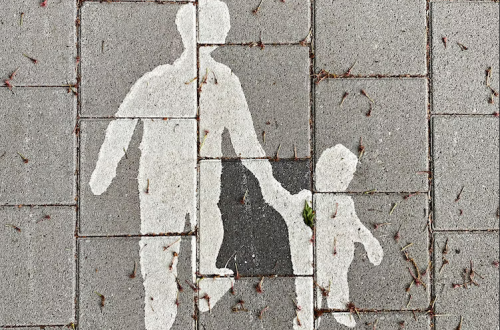 John Piper preaches a message on racial reconciliation every year on the Sunday before Martin Luther King Day. One of my favorites is his sermon from 2000 on Ephesians 2:11-22 titled “Race and Cross.” Piper begins the message with his own testimony of growing up in segregated Greenville, South Carolina. Across town another boy was growing up at the same time—Jesse Jackson. Piper’s testimony is below, but it will be worth your time to read or listen to the entire message. You can listen to the message below, or read the entire manuscript here.
John Piper preaches a message on racial reconciliation every year on the Sunday before Martin Luther King Day. One of my favorites is his sermon from 2000 on Ephesians 2:11-22 titled “Race and Cross.” Piper begins the message with his own testimony of growing up in segregated Greenville, South Carolina. Across town another boy was growing up at the same time—Jesse Jackson. Piper’s testimony is below, but it will be worth your time to read or listen to the entire message. You can listen to the message below, or read the entire manuscript here.
“Race and Cross”
[audio:http://cdn.desiringgod.org/audio/2000/20000116.mp3]
——————————–
Tomorrow is Martin Luther King Day. In 1983, the Congress established the third Monday of every January as a national holiday in honor of Martin Luther King, Jr. and what he stood for. King’s birthday is January 15 and, if he had not been assassinated in 1968 in Memphis, Tennessee, he would have been 71 years old yesterday. Imagine what our recent history might have been had Martin Luther King lived during the seventies and eighties and nineties and trumpeted his vision during all those years!
Why do I mark this day with a sermon on racial relations each year?—this is the fourth year. There are more reasons than I can tell you. But let me tell you some of them. The main reason is in today’s text, Ephesians 2:11-22 and it has to do with the glory of the cross of Christ. I will come to that in a few minutes. But there are personal reasons that might help you understand why it is something I feel a burden to do.
Growing Up White in South Carolina
Start with my growing-up years. I grew up in Greenville, South Carolina. You need to know something of the psyche of this state where I spent the first eighteen years of my life. The population of South Carolina in 1860 was about 700,000. Sixty percent of these were African Americans (420,000) and all but 9,000 of these were slaves. That’s a mere 140 years ago. On December 20, 1860, South Carolina was the first state to secede from the Union, largely in protest over Abraham Lincoln’s election as an anti-slavery president. And it was in Charleston, South Carolina that the Civil War began. Ninety-five years later, when I was nine years old in Greenville, the segregation was absolute: drinking fountains, public rest rooms, public schools, bus seating, housing, restaurants, waiting rooms and—worst of all—churches, including mine.
And I can tell you from the inside that, for all the rationalized glosses, it was not “separate but equal,” it was not respectful, and it was not Christian. It was ugly and demeaning. I have much to be sorry about, and I feel a burden to work against the mindset and the condition of heart that I was so much a part of in those years. And it goes on. South Carolina today will not give state workers a holiday tomorrow and many pride themselves on flying the Confederate flag.
Another Little Boy
Across town from where I grew up, in the same city, five years older than I, another little boy was growing up on the other side of the racial divide. His name was Jesse Jackson. I learned last summer that his mother loved the same radio station my mother did: WMUU, the voice of Bob Jones University. But there was a big difference. The very school that broadcast all that Bible truth would not admit blacks. And the large, white Baptist church not far from Jesse Jackson’s home wouldn’t either. This was my hometown. And as an aside I ask, should we be surprised that some of the strongest black leaders got their theological education at liberal institutions (like Chicago Theological Seminary, where Jackson went), when our fundamental and evangelical schools, especially in the south, were committed to segregation?
Waking Up
God had mercy on me. In the year that I started seminary in California—1968—Martin Luther King was shot and killed. These were explosive days and I was fortunate to have professors who cared about the issues and were committed to finding the Biblical perspective on racial relations. One of those professors, Paul Jewett, compiled a 200-page syllabus of readings for us called “Readings in Racial Prejudice.” These readings were absolutely shocking. You can’t read about the crimes of vicious hatred toward blacks and come away without trembling. The Introduction of that syllabus ends like this:
And now let us listen to the groans of Frederick Douglass, feel the lash with Amy, endure the satire of DuBois, and measure the wrath of Malcolm X; let us contemplate the pathos of black childhood and the tragedy of black womanhood. And let us not forget that “he who passively accepts evil is as much involved in it as he who helps to perpetrate it. He who accepts evil without protesting against it is really cooperating with it.” And let us also remember that if God has given us a revelation of the true nature of man, surely we will render account if we do not live in the light of that revelation, and especially so if we are called to the holy office of the Christian ministry.
Those were powerful days in my life. And now, thirty years later, by God’s amazing grace, I am called to “the holy office of the Christian ministry,” and God has given us a revelation of the true nature of man, and I will render an account of my life and ministry to God as to whether I have lived and preached in the light of that revelation. Hence some of my passion for this weekend and this message.
As secular as the Civil Rights movement was in the sixties, there is no denying the profound Christian impulses that throbbed at the center of it, especially in the life and background of Martin Luther King, Jr.—as imperfect as he was. One little glimpse of it can be seen in the way his father responded to King’s receiving the Nobel Peace prize in 1964. King and other dignitaries were gathered in Oslo, Sweden, and about to celebrate, when the elder King stepped in and said,
“Wait a minute before you start all your toasts to each other. We better not forget to toast the man who brought us here, and here’s a toast to God.” Then in a quavering voice, he told what his son’s prize meant to him. “I always wanted to make a contribution, and all you got to do if you want to contribute, you got to ask the Lord, and let him know, and the Lord heard me and, in some special kind of way I don’t even know, he came down through Georgia and he laid his hand on me and my wife and he gave us Martin Luther King, and our prayers were answered.”
Called to Be More than We Are
Well, I want “to make a contribution” too, as Dr. King, Sr. said. So I asked God’s help, and he came up through Minnesota—I don’t even know how—and laid his hand on me and Noël, and gave us Karsten and Benjamin and Abraham and Barnabas and Talitha Ruth, and he gave us a church at the middle of a racially diverse city, and he gave us a people, and he gave us a fresh mandate four years ago for our church in these words:
Against the rising spirit of indifference, alienation and hostility in our land, we will embrace the supremacy of God’s love to take new steps personally and corporately toward racial reconciliation, expressed visibly in our community and in our church. (Fresh Initiative #3 in Bethlehem’s Vision Statement booklet)
We are called as a church to be something more than we are in living out a manifest, visible racial harmony at the center of the city. To help you see this, and to call you to it, I turn with you now to listen to one clear word from God about racial harmony in our church. This is the ultimate reason for preaching on this issue: God has something to say about it and about how we live together as a church.




One Comment
Mike Bird
Denny, great stuff!